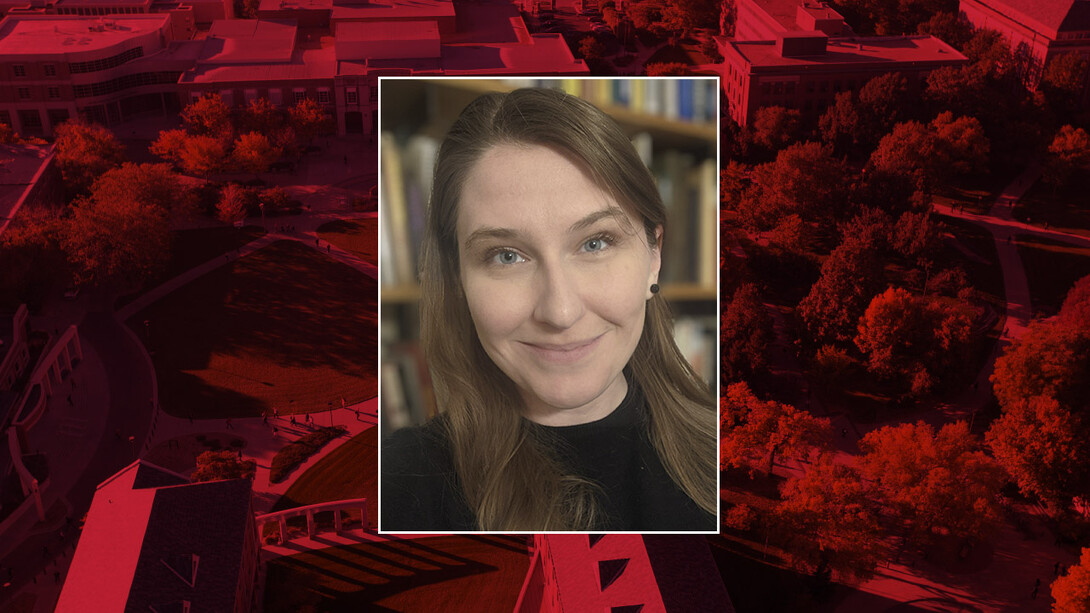
The old Taylor Swift can’t come to the phone right now, but she is under discussion by a growing number of music scholars, including Nebraska’s Paula Harper.
The new assistant professor of musicology in the Glenn Korff School of Music recently hosted “SwiftCon,” an academic conference on all things Taylor Swift. The conference featured a dozen scholars who served on various panels and presented their academic papers.
Through her studies on music, sound and the internet, Harper is at the forefront of her field with a wave of scholars who are broadening the definition of a musicologist in the globally connected 21st century. Harper’s hire was part of a larger effort to modernize traditional music schools.

“We are thrilled to welcome Dr. Harper to the Glenn Korff School of Music,” said Sergio Ruiz, director of the Glenn Korff School of Music. “Her areas of expertise will open up exciting and diverse areas of research for our school, and she will be a wonderful addition to our world-class faculty.”
Historically, the discipline of musicology, or the scholarly analysis of music, has focused on figures such as Bach, Beethoven and Mozart.
“More recently, a lot of people and scholars have pushed against the boundaries of what musicology means and what a musicologist is,” Harper said.
Harper exemplified this shift in boundaries through the Swift conference.
Co-hosted by Christa Bentley, assistant professor of musicology at Oklahoma City University, and Kate Galloway, a lecturer in music at Rensselaer Polytechnic Institute, the SwiftCon panel included topics such as “Swiftian lyrical analysis,” “reception and the music industry,” and “music theorizing Taylor Swift.”
The inaugural conference attracted 100 attendees including musicologists, lawyers, journalists, linguists and fans. It brought together perspectives from all disciplines, including “Swifties” or dedicated fans of Taylor Swift, whose encyclopedic knowledge further supported presenters’ theses.
“It was incredibly kind, supportive and productive for all,” Harper said.
This fall, Harper will transition from conference planner to lesson planner as she begins her first semester as instructor and researcher at Nebraska. SwiftCon was just one of many examples of Harper’s innovation in her field.
Harper said that much like the field of musicology, music departments such as Nebraska’s are having to adapt to the 21st century and changing student interests.
“I think a lot of places are bringing on people who are ready to do the work of pushing what musicology means, and the faculty within those departments are having those conversations of how to bring programs through the 21st century, and how to make them more accord with the kinds of musicians that students want to be in the world,” she said. “Maybe students want to be able to produce beats, and maybe part of having a thriving career as a classical musician is also having a thriving TikTok presence. So, growing with the way that students are existing in the world as musicians is something that I know that the department is doing at UNL. My hire is part of that bigger conversation and move forward.”
Harper already feels welcome at Nebraska and looks forward to joining a big university and attending her first Husker game.
“The faculty, the folks that I’ve met so far at UNL, and in the Glenn Korff School of Music and the department that I’m going to be joining, are all really delightful folks,” she said. “Getting to teach courses to a music major population in a setting with the research resources and the robust music department of UNL is really exciting to me,” she said.
Harper will bring her expertise with courses such as women in music videos and introduction to the study of American popular music. Her expertise on music, sound and the internet extend much further than pop music.
In her dissertation on music and sound in viral media, Harper dove into the concept of cultural contagion and the virality of certain pieces. Her findings painted virality as a double-edged sword. While music is often perceived as a positive, unifying art, it can be, and often is, weaponized for capital gain or the promotion of conspiracy theories and political ideologies.
“That’s kind of the downer takeaway of my research,” Harper said. “Music has a lot of power but that power is not always used for good by individuals or larger networks of people.”
Harper earned her doctoral degree in historical musicology from Columbia University in 2019. A former postdoctoral teaching fellow at Washington University in St. Louis, Harper is excited and equipped to bring innovative concepts to Nebraska.







